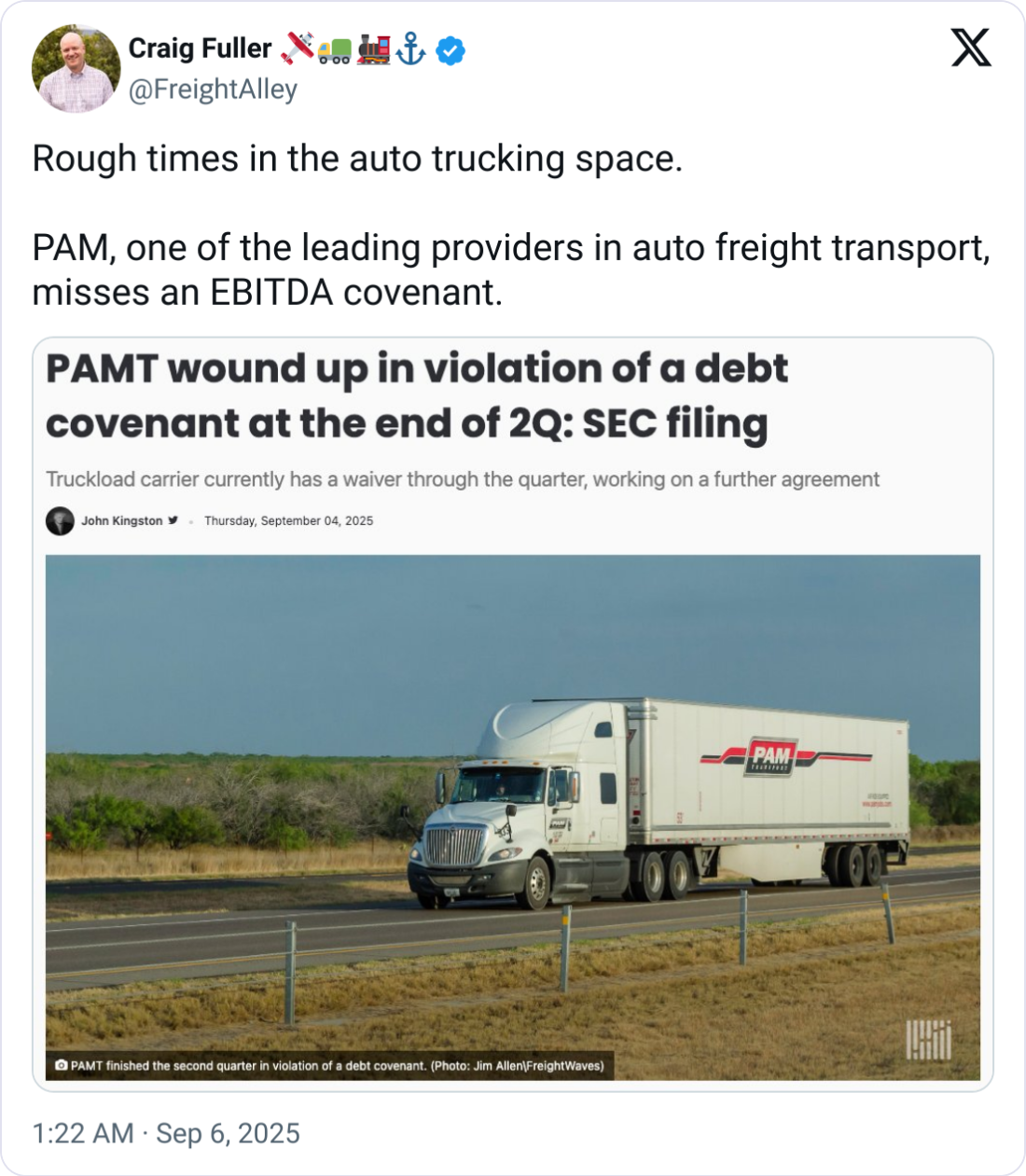🎣 Winter Has Come
Plus: Congress advances transportation funding bill, warehouse demand rebounds, December imports slide.
PAMT breached a debt covenant in Q2 2025, highlighting mounting losses, rising debt from equipment purchases, and continued struggles to meet revenue goals as lenders grant temporary waivers.

Truckload carrier PAMT disclosed in a recent SEC filing that it violated a key debt covenant at the end of the second quarter, further bringing out the financial pressures at the company. The covenant required PAMT to maintain a debt-to-EBITDA ratio of less than 4:1, measured on a rolling four-quarter basis.
According to the filing, the company was not in compliance as of June 30, 2025. While PAMT was granted a 45-day “cure period,” it secured a waiver from its lender on August 7 and said it is working to amend covenant terms going forward.

The filing noted that the breach stemmed from higher debt taken on to fund $144.2 million in equipment purchases in 2024, combined with weaker EBITDA performance as stronger quarters dropped out of the rolling calculation.
As of June 30, PAMT reported $331.2 million in long-term debt and current maturities, up from $325.6 million at the end of 2024. The company also has access to a $60 million revolving line of credit, with no borrowings against it, at a variable rate tied to SOFR plus 1.85%.
The company’s performance has deteriorated sharply. PAMT’s second-quarter operating ratio reached 112.5%, worsening from 110.9% in the first quarter and marking the seventh consecutive quarter of operating losses.
Stock performance has mirrored the financial struggles. Since peaking around $40 per share in March 2022, PAMT’s stock has lost more than 70% of its value and is down about a third in the past year alone. The pressure led to the resignation of CEO Joe Vitiritto following first-quarter earnings earlier this year.
In 2021, PAMT’s leadership set an ambitious goal of $1 billion in revenue by 2025. Midway through this year, the company reported $306.5 million in six-month revenue, leaving it well short of that target.
The carrier’s challenges are compounded by its concentration in the automotive sector and reliance on U.S.–Mexico cross-border freight, which accounts for more than 40% of its revenues. SeekingAlpha recently described PAMT as a “cyclical carrier with low multiples, with certain problems controlling margins, very dependent on the auto sector.”
The same analysis amplifies the seriousness of the covenant breach:
“The recent breach of financial covenants, even though the bank has granted a waiver, only reinforces this weak position.”
Source: FreightWaves
Join over 14K+ subscribers to get the latest freight news and entertainment directly in your inbox for free. Subscribe & be sure to check your inbox to confirm (and your spam folder just in case).